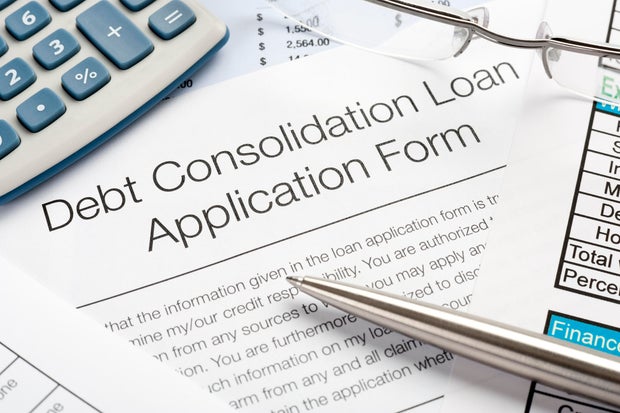Is debt consolidation worth it?
After several tough years economically, many Americans are struggling with debt. According to a TransUnion report, from the end of 2021 to the end of 2022, total credit card balances rose from $930 billion to $785 billion, and total balances rose from $167 billion to $222 billion.
The average borrower has $5,805 in credit card debt and $11,116 in personal loans. With the average credit card interest rate hovering around 24% and the average personal loan rate between 6% and 10%, it's not surprising that delinquencies have also risen.
If you're having trouble making your debt repayments — or you're paying a mountain of interest each month — debt relief is worth considering. One of these options is debt consolidation.
In debt consolidation, you take out a loan and use the proceeds to pay down your existing credit balances. Ideally, the new loan has better terms than your current debt, helping you pay your balances off faster and potentially save money. In this article, we'll explore when debt consolidation might be a good option for you.
Get a free savings estimate today to begin exploring your debt relief options.
Is debt consolidation worth it?
There are many forms of debt relief, and the best one for you depends on your financial situation. Here are four times when consolidation is worth considering.
You want a lower interest rate
If you have a good credit score, you may be able to get a consolidation loan with an interest rate lower than what you're paying on your current balances. This can save you money over the length of your repayment.
If you think debt consolidation could help you, then explore your options here.
You want one debt payment
Multiple payment deadlines can make it harder to stay on top of everything, increasing your risk of missing a payment. With consolidation, you can combine all of your debt into one simple payment, making tracking and budgeting much easier.
You want to pay off your debt faster
With credit cards, there's no set timeframe to pay off the balance. You're only required to make the minimum payment each month, which does little to decrease your total balance. A consolidation loan, on the other hand, has fixed monthly payments and a set payoff period, which can force you to pay your balance down more aggressively than you might have otherwise.
You want to improve your credit score
The more you pay down your debt, the better it is for your credit score. In addition, consolidation can also help your credit by increasing your credit utilization ratio. By opening a new line of credit and using it to pay off your other credit accounts, you bring those accounts to a zero balance. This frees up more available credit compared to your total credit lines, which can raise your score.
Other considerations
There are plenty of pros to consolidation, but there are also some cons. Keep these in mind while deciding if it's right for you:
- You may incur fees: Some consolidation loans carry fees, including loan origination fees, closing fees and annual fees. Be sure to take these into account when weighing how much money you stand to save by consolidating.
- You may not qualify for a lower interest rate: Debt consolidation only results in a lower interest rate if your credit score is strong enough to qualify for the best rates. If your credit is shaky, you may end up with an interest rate that's not much better than your current rates. Add in any fees from consolidation, and your savings may be minimal or nonexistent.
- It can temporarily hurt your credit: Paying down your debt will boost your credit in the long term. But you may see a temporary ding to your score because applying for a consolidation loan triggers a hard inquiry. Hopefully, your score will recover soon enough as you repay your loan. But it's still worth considering.
- It only works if you can afford the new payment: Debt consolidation assumes you have the money to pay off your debt if you can arrange better terms. But if you can't afford to pay much (if anything), you're likely to miss payments on your new loan, which only sets you back further. If you're struggling to find the cash to pay down your debt, you're better off exploring other debt relief options, such as debt settlement or debt forgiveness.
The bottom line
You don't have to struggle with overwhelming debt. There are ways to reduce your overall debt load and get your finances back on track. Just be sure to weigh your options carefully and consider all of the pros and cons before choosing a debt relief route to pursue.




